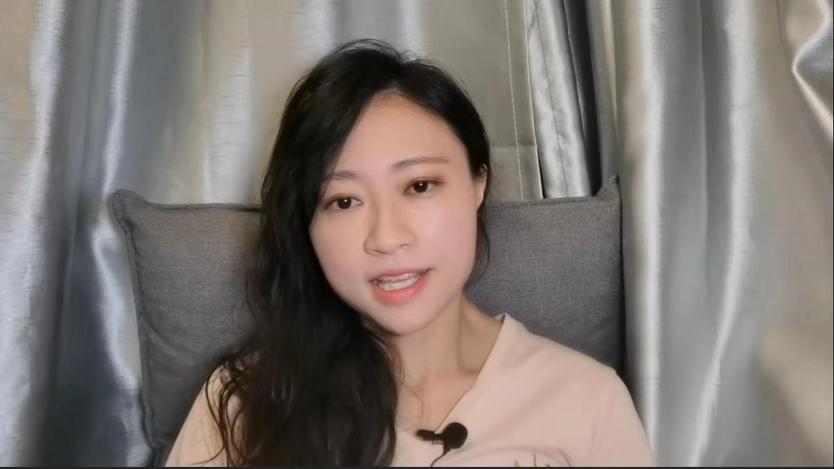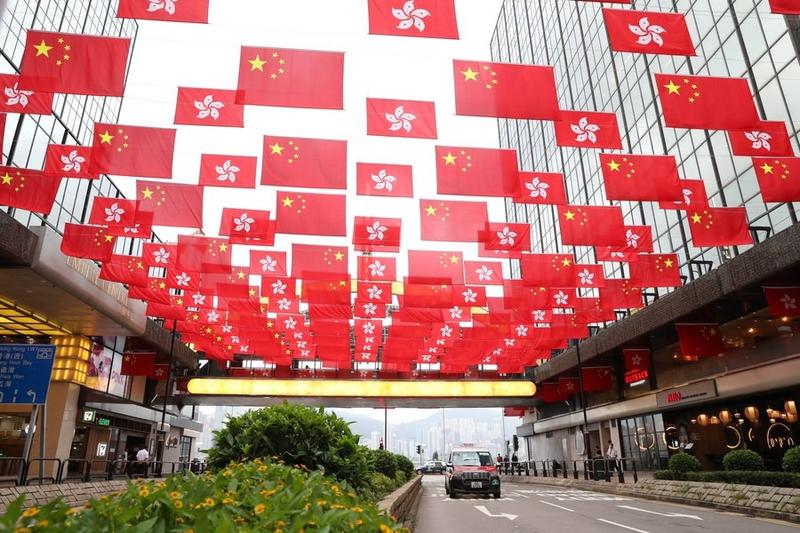 File photo of Hong Kong lawmaker Joephy Chan. (PHOTO / PROVIDED TO CHINA DAILY)
File photo of Hong Kong lawmaker Joephy Chan. (PHOTO / PROVIDED TO CHINA DAILY)
Editor’s Notes: Hong Kong is going to celebrate the 25th anniversary of its return to the motherland, the halfway mark of “one country, two systems”. In this “Anniversary Talks” series, China Daily invited locals from various sectors to shed light on their views on the city’s changes over the past 25 years and their visions for the city’s future.
In this article, Hong Kong lawmaker Joephy Chan Wing-yan, the youngest member of the city’s seventh-term Legislative Council, said the strong will to uphold “one country, two systems” motivated her to enter politics, and Hong Kong’s success is the most effective rebuttal to naysayers of the special administrative region’s return to the motherland.
![]() 1. This year marks the 25th anniversary of Hong Kong’s return to the motherland. How do you view the development of the city over the past 25 years?
1. This year marks the 25th anniversary of Hong Kong’s return to the motherland. How do you view the development of the city over the past 25 years?
Being 25 years old, for many people, is just the beginning of life as young adults. Like many young adults, there are bound to be uncertainties. People will start to envisage what it will be like in the next 25 years. But just like the growing up of any young adults — we can be assured that our motherland is always here to back us up and help Hong Kong get back on track even in the most difficult times. In light of the aforesaid, I am confident that the future of Hong Kong is bright and clear.
2. How about the development of “one country, two systems” in the course of the past quarter-century? How do these changes affect the city, and you personally?
In the past 25 years, Hong Kong has experienced ups and downs. Having witnessed “one country, two systems” in the face of all sorts of smearing and malicious attacks, I feel obliged to ensure “one country, two systems” fares well, bringing stability and prosperity to Hong Kong as a contribution to the development of Modern China. If “one country, two systems” works and achieves its purpose, we have every reason to continue to practice it in Hong Kong and even in other areas of China, such as Taiwan. Therefore, it has given me a sense of mission and made me decide to enter politics.
ALSO READ: Mainland pop culture gains traction among HK youth
3. In the past 25 years, many industries have seen things evolve. How about your industry or your sector? Among these changes, what impressed you the most?
We see major changes in the field of politics. The Hong Kong political system is much more efficient with a more-balanced participation after the implementation of the National Security Law for Hong Kong and the revamping of the electoral system. As one of the first batch of LegCo members as well as the youngest member in LegCo after the consolidation of the electoral system, I am most grateful for the opportunity.
4. Do you still remember what were you doing on Jun 30, 1997? Some, especially the Western countries, predicted Hong Kong’s demise when it was returned to the country on July 1. To this date, such rhetoric continues. How do you feel about that?
I once commented on this in the first UN side meeting. Back when I was a child in the 1990s, Western media and politicians were already predicting the death of Hong Kong upon the end of British colonial rule. Headlines of similar predictions return every now and again, especially after 2019. It’s just deja vu and old rhetoric. It’s such an irony that now we are celebrating the 25th anniversary of Hong Kong’s return to the motherland. Perhaps the anniversary is the best demonstration to those being fooled and manipulated by Western media bias and political agendas.
ALSO READ: 'Lion Rock Spirit' drama to hail SAR's anniversary
5. Tell us your stories about Hong Kong. How would you describe Hong Kong as a city to live, work and do business in?
I would describe Hong Kong as being a young adult at the young age of 25, who is energetic and full of hopes and possibilities. The implementation of the National Security Law ended the chaotic situation in Hong Kong after 2019, bringing Hong Kong from chaos to stability. With the consolidation of the electoral system, we now enter the new phase from stability to prosperity. The government of the Hong Kong Special Administrative Region can now better leverage the central government’s support to enhance Hong Kong’s competitiveness as the eight international centers charted in the nation’s 14th Five-Year Plan (2021-25) with a view to building a brighter future for Hong Kong. People would lose out if they choose not to live, work or invest in Hong Kong.
 Photo taken on June 29, 2021 shows China's national flags and flags of the Hong Kong Special Administrative Region (HKSAR) on a street in China's Hong Kong. (PHOTO / XINHUA)
Photo taken on June 29, 2021 shows China's national flags and flags of the Hong Kong Special Administrative Region (HKSAR) on a street in China's Hong Kong. (PHOTO / XINHUA)
6. Hong Kong has seen tighter and deeper integration with the Chinese mainland since its return to the motherland. How do you see this going in the next 25 years?
As I said, I think the Hong Kong political system has been put back on track after the implementation of the National Security Law and the revamping of the electoral system, allowing us to bring Hong Kong a stable and prosperous future. Deeper integration with the Chinese mainland is an unmissable trend. Many of my friends have already started to look for learning or work opportunities on the mainland, mainly the Guangdong-Hong Kong-Macao Greater Bay Area. Latecomers will miss out.
ALSO READ: John Lee: We'll listen to the public with sincerity
7. Hong Kong holds many international standings and positions, which is part of its overall competitiveness. What do you think gives Hong Kong its competitiveness? What should it do to consolidate and maintain its competitiveness?
Hong Kong is unique because it is a melting pot of Eastern and Western cultures as well as traditional and modern values. Hong Kong is so distinctive, as we enjoy rights under “one country, two systems” enshrined in the Basic Law, which is empowered by the central government. Therefore, we must use our best endeavors to ensure “one country, two systems” fares well so that we can maintain our competitiveness.
8. What about the next 25 years? Hong Kong has passed the halfway mark of its 50 years unchanged practice of “one country, two systems”. Is there anything that you want to say to Hong Kong residents during this special occasion?
I have dedicated myself to ensure “one country, two systems” works well for all, and I hope that 25 years later, we together can continue to witness and demonstrate the superiority of “one country, two systems”.


